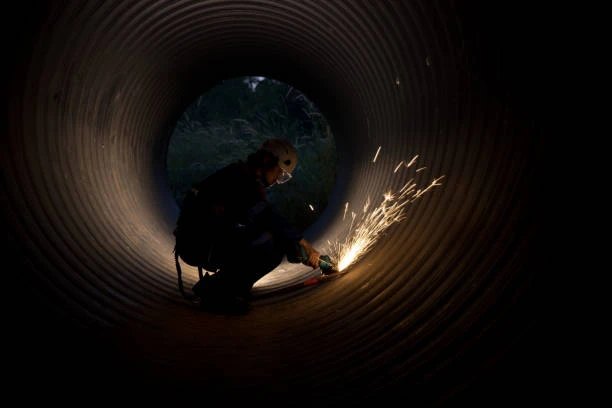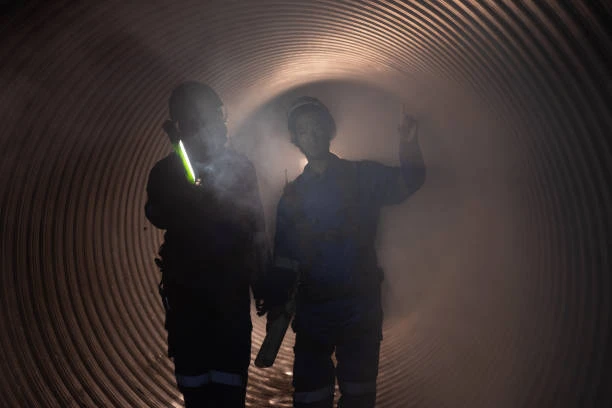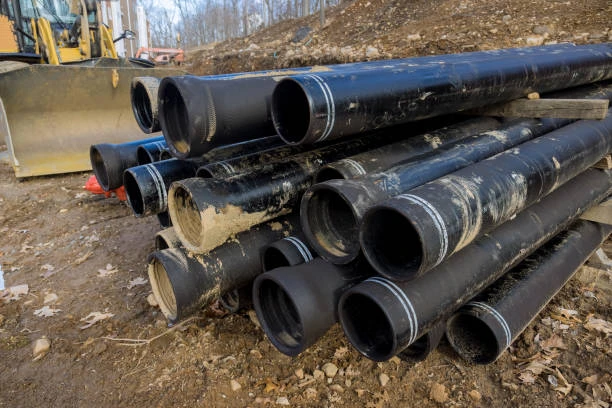Introduction
Water Pipe As winter descends upon Bay County, residents face a familiar yet daunting challenge: frozen water pipes. This seasonal issue not only disrupts daily life but also poses significant risks to property and public health. Understanding the causes and consequences of frozen water pipes is essential for homeowners and community leaders alike. This article delves into the complexities surrounding frozen water pipes in Bay County, exploring their impact on the community and offering practical solutions to mitigate this pressing issue.
What Causes Frozen Water Pipe?
Frozen water pipes occur when the temperature of the water inside the pipes drops below freezing, causing the water to freeze and expand. This expansion can lead to increased pressure within the pipes, often resulting in cracks or bursts. Several factors contribute to the freezing of water pipes:
- Low Temperatures: Prolonged exposure to temperatures below 32°F (0°C) is the primary cause of frozen pipes. In Bay County, winter temperatures can plummet, making it essential for residents to take precautions.
- Poor Insulation: Pipes located in unheated areas, such as basements, attics, or exterior walls, are particularly vulnerable. Insufficient insulation can lead to rapid heat loss, increasing the risk of freezing.
- Drafts and Wind: Cold drafts can significantly lower the temperature around pipes. Homes with gaps in windows, doors, or walls may experience colder indoor temperatures, contributing to the freezing of water pipes.
- Infrequent Use: Pipes that are not used regularly, such as those in vacation homes or seasonal properties, are at a higher risk of freezing. When water sits stagnant in these pipes, it can freeze more easily.
The Impact on Water Pipe the Bay County Community
The complications arising from frozen water pipes can be extensive, affecting not only individual households but also the broader Bay County community. Here are some of the key impacts:
1. Water Pipe Supply Disruptions
When water pipes freeze and burst, it can lead to significant disruptions in the water supply. Residents may find themselves without access to clean water for drinking, cooking, and sanitation. This can create a public health concern, especially in a community where many rely on a consistent water supply.
2. Water Pipe Property Damage
Burst pipes can cause extensive damage to homes and businesses. Water can seep into walls, ceilings, and floors, leading to mold growth and structural issues. The cost of repairs can be substantial, placing a financial burden on homeowners and local businesses.
3. Increased Emergency Response
Local authorities may face increased calls for emergency assistance due to frozen pipes. Fire departments, plumbing services, and municipal workers may be stretched thin as they respond to multiple incidents. This can divert resources away from other critical community needs.
4. Economic Impact
The economic implications of frozen water pipes can be far-reaching. Businesses may experience closures or reduced operations due to water supply issues, leading to lost revenue. Additionally, the cost of repairs and increased utility bills can strain household budgets, impacting the overall economy of Bay County.
Preventive Measures for Water Pipe Homeowners
Preventing frozen water pipes is essential for homeowners in Bay County. Here are some effective strategies to minimize the risk:

1. Insulate Pipes
Proper insulation is key to preventing frozen pipes. Homeowners should insulate pipes located in unheated areas, such as basements and attics, using foam sleeves or insulation tape. This helps maintain a consistent temperature around the pipes.
2. Keep the Heat On
During extreme cold spells, it’s crucial to keep the heat on in your home, even if you plan to be away. Set the thermostat to a minimum of 55°F (13°C) to ensure that the temperature remains above freezing.
3. Let Faucets Drip
Allowing faucets to drip slightly can help prevent freezing. The movement of water through the pipes reduces the likelihood of ice formation. This is particularly important for faucets connected to pipes that run through unheated spaces.
4. Seal Cracks and Openings
Inspect your home for any cracks or openings that may allow cold air to enter. Seal these gaps with caulk or insulation to prevent drafts from lowering the temperature around your pipes.
5. Disconnect Hoses
Before winter sets in, disconnect and drain garden hoses. This prevents water from remaining in the hoses and freezing, which can lead to pressure buildup in the connected pipes.
Community Resources and Water Pipe Support
The Bay County community has access to various resources to help residents deal with the complications of frozen water pipes. Local government agencies often provide information on preventive measures and emergency assistance for those affected by frozen pipes. Additionally, community workshops may be offered to educate homeowners on best practices for winterizing their plumbing systems.
Conclusion
Frozen water pipes pose a significant challenge for the Bay County community, impacting water supply, property, and the local economy. By understanding the causes and implementing preventive measures, homeowners can protect their properties and contribute to the overall resilience of the community. As winter continues, it is essential for residents to remain vigilant and proactive in safeguarding their homes against the threat of frozen water pipes.
FAQs
1. What should I do if my water pipe freezes?
If you suspect a pipe has frozen, turn off the water supply and try to thaw the pipe using a hairdryer or heat tape. Avoid using open flames.
2. How can I tell if my water pipe is frozen?
Signs of a frozen pipe include reduced water flow, strange noises when running water, or frost on the pipe itself.
3. Can I prevent my pipes from freezing?
Yes, you can prevent frozen pipes by insulating them, keeping the heat on, letting faucets drip, and sealing any drafts.
4. What are the risks of a burst pipe?
A burst pipe can lead to significant water damage, mold growth, and costly repairs, as well as disruptions to your water supply.
5. When should I call a plumber for frozen pipes?
Call a plumber if you cannot locate the frozen section of the pipe, if the pipe has burst, or if you are unable to thaw it safely.

















